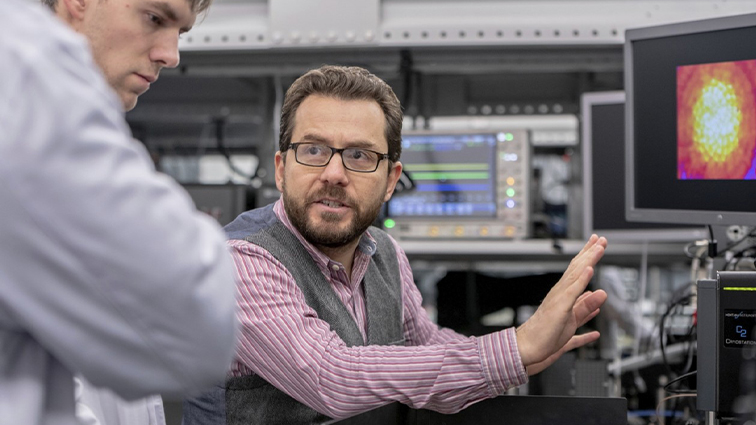A team of Russian and European physicists have developed a revolutionary approach based on “liquid light,” an innovative type of particle that combines light and matter, to speed up logical operations in computers.
According to a report by the press service of the Russian ‘Skoltech’ Center on Friday, devices developed using this new technology outperform their electronic counterparts in terms of speed, performing logical operations hundreds of times faster.
“Photons do not interact with each other as electrons do, which has made the development of an integrated optical logic converter a long-standing challenge from a physical and technological point of view,” explained Denis Sannikov, a researcher at Skoltech University. “We were able to solve this problem by taking advantage of the unique properties of liquid light, which combines the properties of photons and electrons.”
The development of this technology, which is based on “liquid light” consisting of quasiparticles known as “exciton polaritons,” was led by Professor Pavlos Lagoudakis of ‘Skoltech’ University.
Previously, scientists believed that these structures could only exist at temperatures close to zero, but the Russian discoveries have shown that they can also operate at room temperature.
The researchers developed polariton transistors that operate at room temperatures at frequencies hundreds of times higher than their electronic counterparts, and these transistors were used to create an optical device capable of performing NOR logic operations, a type of logic gate that compares two values and produces one result if both values are zero.
The team produced prototypes of NOR gates using multilayer structures made of the polymer MeLPPP, with miniature mirrors made of quartz and thallium oxide.
The experiments showed that these models operate at frequencies of up to about a terahertz, which bodes well for the development of superfast and energy-efficient computers based on “liquid light” in the future.
Moscow advises Russian citizens to refrain from traveling to the Middle East
